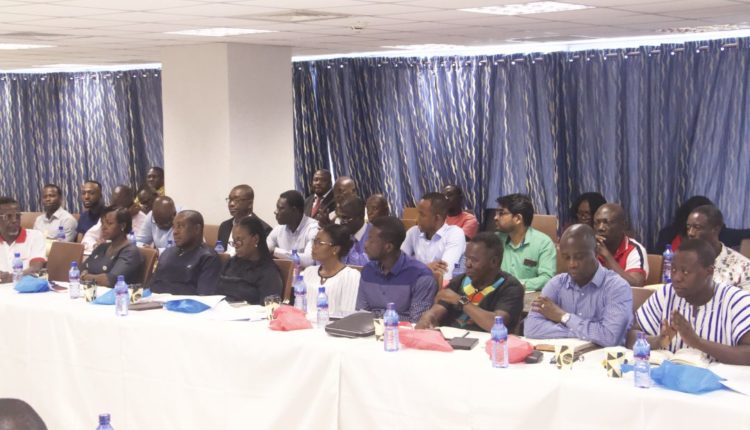The ongoing fracas between members of the Ghana Union of Traders Associations (GUTA) and foreign petty traders has provoked a lot of discussions, both on the academic front and within the media space; but Tuesday’s arrest of some GUTA leaders has taken the discourse to a different level.
Initially, the general talk was about the ‘brotherliness’ between Ghana and Nigeria, and the fear of reprisal xenophobic attacks, if Ghanaian traders did not hold their peace. Then, with the police arrests, and the resolve of GUTA members to ‘enforce’ our laws if the authorities wouldn’t, many are beginning to wonder whether Ghana had not bartered her sovereignty for international treaties.
The main bone of contention is the failure to enforce Section 27 of the Ghana PIC Act 865, which talks about the entry, admission and protection of investment, as well as which activities are the reserve of Ghanaians and Ghanaian-owned enterprises.
It reads, inter alia: “A person who is not a citizen or an enterprise which is not wholly owned by citizen shall not invest or participate in the sale of goods or provision of services in a market, petty trading or hawking or selling of goods in a stall at any place; the operation of a beauty salon or a barber shop”, etc.
Clear as this law is, some people, including foreign nationals, have argued that the law runs contrary to the ECOWAS provisions on the free movement of goods and persons within the sub-region.
Interestingly, nearly all the high profile Ghanaian personalities that have so far spoken their minds on the development have not been as BLUNT as the average Ghanaian trader, who seeks nothing less than a full implementation of the law, would have expected.
For instance, a learned lawyer and lecturer at the Ghana Institute of Management and Public Administration (GIMPA), Justice Srem Sai, did not only fault the law barring foreign nationals from engaging in the retail market in Ghana, but also stressed that it just cannot be enforced.
To him, once Ghana had signed on to be part of an international organization, she must respect the ‘aims’ of that organization.
Then the Chief Executive Officer of the Ghana Investment Promotion Center (GIPC), Yofi Grant, sounding somewhat equivocal, opined that the panacea towards resolving the standoff is “either the strict enforcement or revision of the law”.
Most unfortunate is when a Ghanaian Legislator, who was part of those who made the law, claims he too is CONFUSED about Act 865.
Member of Parliament for Odododiodoo, Edwin Nii Lante Vanderpuye says he is put in a ‘dilemma’ whenever it comes to the definition of stalls, stores or what qualifies as a market place, and suggested a review to provide more clarity.
THE NEW PUBLISHER is not enthused about the way the law is being interpreted and enforced. It appears the executive merely decides on which aspect to enforce and which it shouldn’t.
In our view, Ghana’s sovereignty takes preeminence over any international treaty; and that the diplomacy (OR COWARDICE) of our leaders is simply becoming too much.


Comments are closed.